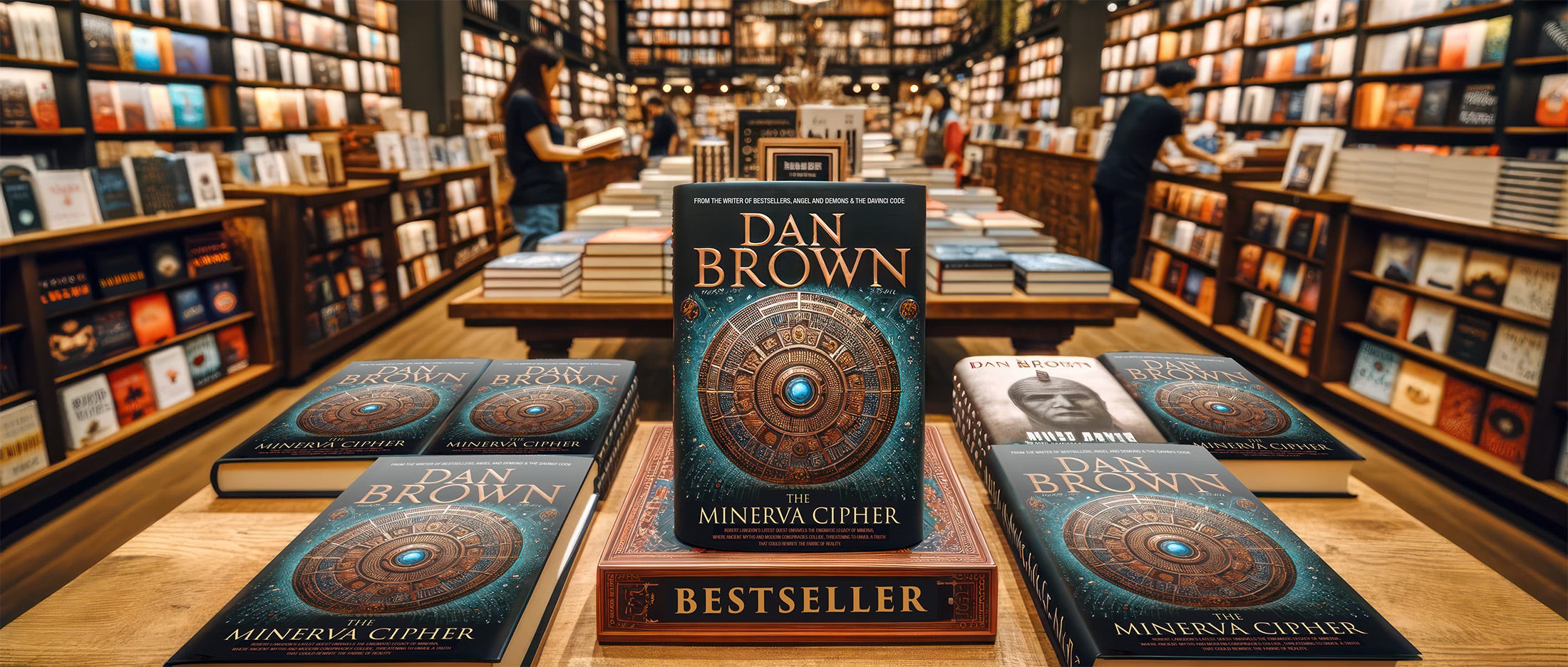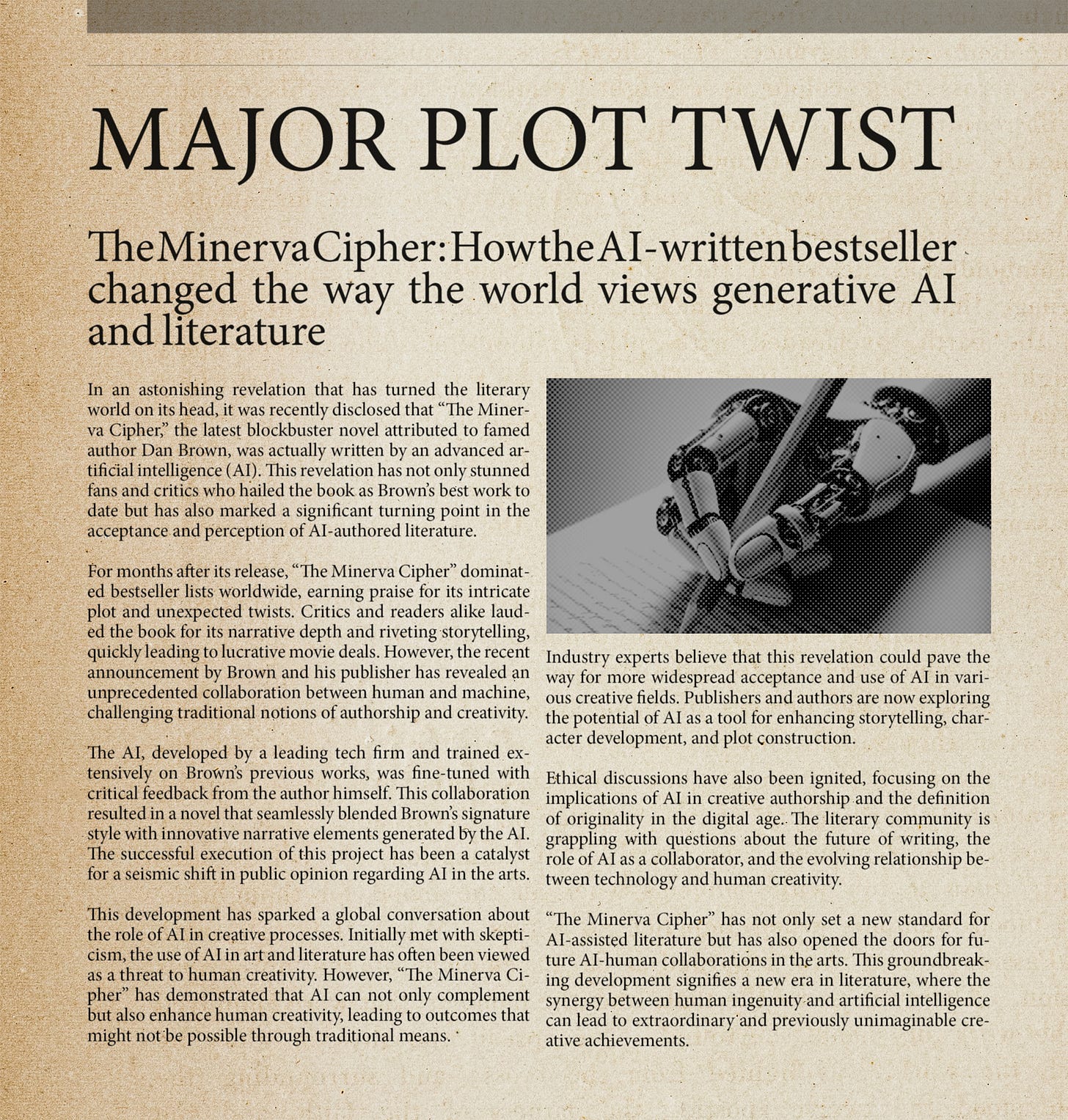The Minerva Cipher
The plot twist that shifted worldview.
I recently made a discovery after embarking on a journey in the janky time machine. My destination? A local bookshop, just a few years out.
For ages, the notion of AI authoring a book palatable to human readers seemed like a distant fantasy. That is, until a brilliant twist of fate upended our assumptions about the limits of artificial intelligence.
Despite AI's proven ability to generate captivating ideas and narratives, widespread acceptance remained elusive. The public, it seemed, was hesitant to embrace the concept of a machine as a storyteller. But then came a groundbreaking novel that captured the imagination of readers worldwide. Dominating bestseller charts, sparking a frenzy for film adaptations (complete with a Tom Hanks metaverse avatar in a multi-picture deal), and even earning a Pulitzer Prize – it was a literary sensation like no other. Elderly women were seen sporting cipher-inspired tattoos, a testament to the book's profound impact. The literary world was abuzz with excitement and intrigue.
And then, the revelation that left everyone astounded: this monumental book was entirely penned by an AI.
This book wasn't just a bestseller; it was a Trojan horse that revolutionized global perceptions of AI's creative potential.





By any chance did you notice if the members of the Pulitzer committee were human, AI, or both? I'm curious if this was humans honoring AI or AI honoring itself.
I just watched American Fiction the other day. So now imagining an AI author that doesn't want to pander to human readers expecting the "authentic AI story."